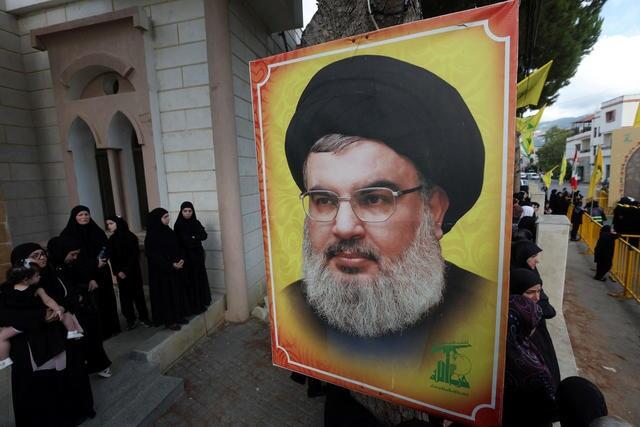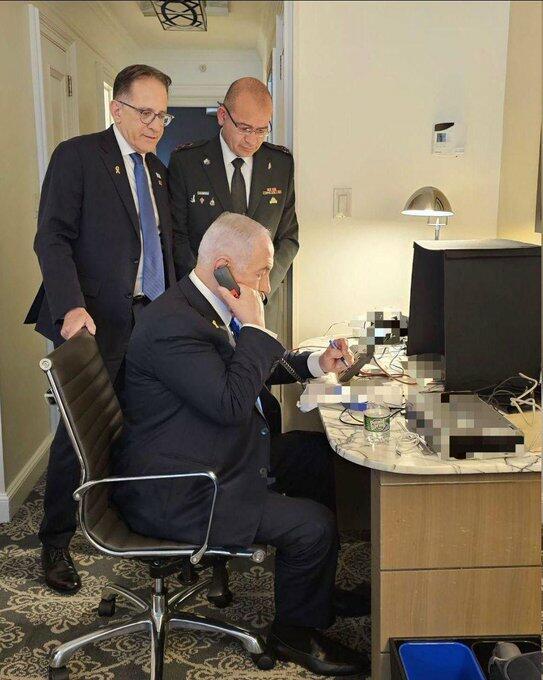On Saturday Hezbollah has finally issued confirmation via its Al-Manar television channel that Hassan Nasrallah, the Lebanese Shia group's leader for 32 years, has been killed in Friday's major Israeli airstrikes on the Dahieh suburb of Beirut.
The group said in the statement of the slain Secretary-General, "His eminence, the master of resistance, the righteous servant, has passed away to be with his lord who is pleased with him as a great martyr."

"The leadership of Hezbollah pledges ... to continue its jihad in confronting the enemy [Israel], supporting Gaza and Palestine, and defending Lebanon and its steadfast and honorable people," it added.
There was nothing further detailed as to precisely how the group would respond, only that it plans to continue its fight against Israel. No doubt it could take some time before it regroups, as likely many more of its commanders were taken out in the large-scale strikes which utterly destroyed multiple large buildings Friday.
Within hours prior to Hezbollah finally confirming and announcing the monumental development which will send shockwaves through the Arab world, the Israel Defense Forces issued a statement proclaiming: "Hassan Nasrallah will no longer be able to terrorize the world."
PM Netanyahu had ordered or monitored the strike from New York, after just stepping away from a speech before the United Nations General Assembly:
Overnight it was clear something major was brewing given there was an emergency meeting in Tehran of top national security officials chaired by the Ayatollah in the wake of the Dahieh bombings. Within the last hours Reuters has reported that Supreme Leader Ayatollah Ali Khamenei has been "transferred to a secure location inside the country with heightened security measures in place," according to Iranian security officials.
American-supplied heavy bombs were likely used in the strikes that killed Nasrallah:
Israel media says about 85 so-called “bunker-buster” bombs were used. Also known as “ground penetration munition”, these missiles burrow deep into the ground before they detonate.
They have the power to destroy underground facilities and reinforced concrete buildings. The bombs each weigh between 2,000 and 4,000 pounds.
Nasrallah has loomed large in the last decades of Middle East conflict and politics, having founded Hezbollah in 1982 and spending his life transforming it into a fierce guerrilla warfare group which has became Israel's number one regional foe (alongside Hamas).
Hamas published condolences:
Below is the full Hamas statement as translated and published in Al Jazeera:
"We extend our sincere condolences, sympathy and solidarity to the brotherly Lebanese people and brothers in Hezbollah and the Islamic resistance in Lebanon."
"We condemn in the strongest terms this barbaric Zionist aggression and the targeting of residential buildings … in the southern suburb of Beirut, and we consider this a cowardly act of terrorism, a massacre and a heinous crime, which proves once again the bloodiness and brutality of this occupation."
Hamas further said that Hezbollah has a whole line-up of leaders waiting to take up the mantle of war against Israel: "History has proven that the resistance against the Zionist enemy, in all its factions and places of presence, whenever its leaders go as martyrs, has a generation of leaders to lead them on the same path," the statement concluded.
It is well-known that the group has also long been supported by Iran, from where it receives much of its most sophisticated surface-to-surface missiles, including ballistic missiles.
Israel had kept its airstrikes on Beirut going throughout the night, even after the attack which killed Nasrallah and many top commanders, while civilians desperately fled the southern suburbs.
developing...

No comments:
Post a Comment
Note: Only a member of this blog may post a comment.